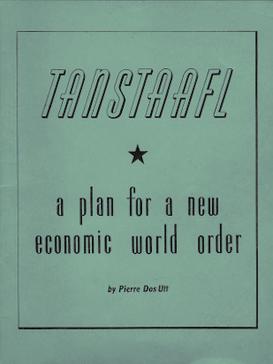There ain't no such thing as a free lunch facts for kids
"There ain't no such thing as a free lunch" is a famous saying. It means that you can't get something for nothing. Even if something seems free, there's always a cost involved. This cost might be hidden, or someone else might pay for it. You might also see it as the short forms TANSTAAFL, TINSTAAFL, or TNSTAAFL.
The idea comes from old American bars. They used to offer a "free lunch" to people who bought drinks. This saying became very popular thanks to Robert A. Heinlein's 1966 science-fiction novel The Moon Is a Harsh Mistress. A famous economist named Milton Friedman also helped make it well-known. In economics, this idea helps explain something called opportunity cost.
Contents
What Does "No Free Lunch" Mean?
The Original "Free Lunch"
Long ago, in the United States, many bars offered a "free lunch." If you bought a drink, you could eat as much as you wanted. But these lunches often had salty foods like ham or cheese. This made people thirsty, so they bought more beer! So, the lunch wasn't really free for the bar owners. They made their money from the drinks.
The famous writer Rudyard Kipling saw this in 1891. He wrote about how you could eat a lot for very little money. But you still had to buy a drink first.
Understanding the Real Cost
The saying "There ain't no such thing as a free lunch" means that in real life, nothing is truly free. Even if you don't pay money, there's always a cost. This cost might be:
- Hidden: You don't see it right away.
- Paid by someone else: Someone else covers the cost for you.
- An externality: A cost that affects others, even if they aren't directly involved.
For example, if a bar gives a "free" lunch, they might charge more for their drinks. So, you still pay for the lunch, just in a different way.
How the Saying Became Famous
The full phrase first appeared in a newspaper in 1938. It was part of a joke called "Economics in Eight Words." Later, in 1949, it showed up in a book by Pierre Dos Utt. This book talked about a new way to organize society based on the "no free lunch" idea.
In 1950, a newspaper writer said that an economist named Leonard Porter Ayres used the phrase. He called it an "immutable economic fact."
The saying became even more popular in 1966. This was when Robert A. Heinlein used TANSTAAFL as a main idea in his book The Moon Is a Harsh Mistress. The book helped many more people learn about the phrase.
"No Free Lunch" in Different Areas
The idea that nothing is truly free applies to many parts of life.
Science
In science, the "no free lunch" idea means that the universe is a closed system. This means it doesn't get new energy or matter from outside. Everything eventually runs out. This connects to the Second law of thermodynamics, which talks about how energy spreads out.
However, some people say the Sun is a "free lunch" for Earth. The Sun gives us light and energy, which helps plants grow and create oxygen. But if you look at the Sun and Earth together as one big system, there's no new energy coming in. So, it's still not a "free lunch" for the whole system.
Economics
In economics, "no free lunch" is about opportunity cost. This means that when you choose one thing, you give up the chance to have something else. For example, if you spend your money on a new video game, you can't use that same money to buy a new book.
This idea is true when all resources are being used in the best way. If resources are wasted, then you might find a "free lunch" by using them better. Also, sometimes one person can benefit for "free" from something that others pay for. This is called a Free rider problem.
Finance
In the world of money and investments, "no free lunch" means there's no way to make money without any risk. If two investments have the same benefits, they should cost the same. If they don't, someone could make money easily without risk, which usually doesn't happen for long.
Technology
The phrase TANSTAAFL is sometimes used when talking about free software. Supporters of free software often explain that "free" means "freedom" (like "free speech"), not "no cost" (like "free beer"). So, while the software might not cost money, there are still other costs, like time to learn it or support it.
Sports
In baseball, some experts use "TINSTAAPP." This stands for "There Is No Such Thing As A Pitching Prospect." It means that many young baseball pitchers get hurt before they can play well in the big leagues. So, even a promising young player isn't a guaranteed success.
Social Policy
In some countries, like Hungary, leaders have used this saying to explain changes to social programs. They want people to understand that even if the government provides something "for free," it's actually paid for by other people through taxes. The government isn't a separate entity that just gives things away.
Images for kids
See also
 In Spanish: TANSTAAFL para niños
In Spanish: TANSTAAFL para niños
 | Kyle Baker |
 | Joseph Yoakum |
 | Laura Wheeler Waring |
 | Henry Ossawa Tanner |



